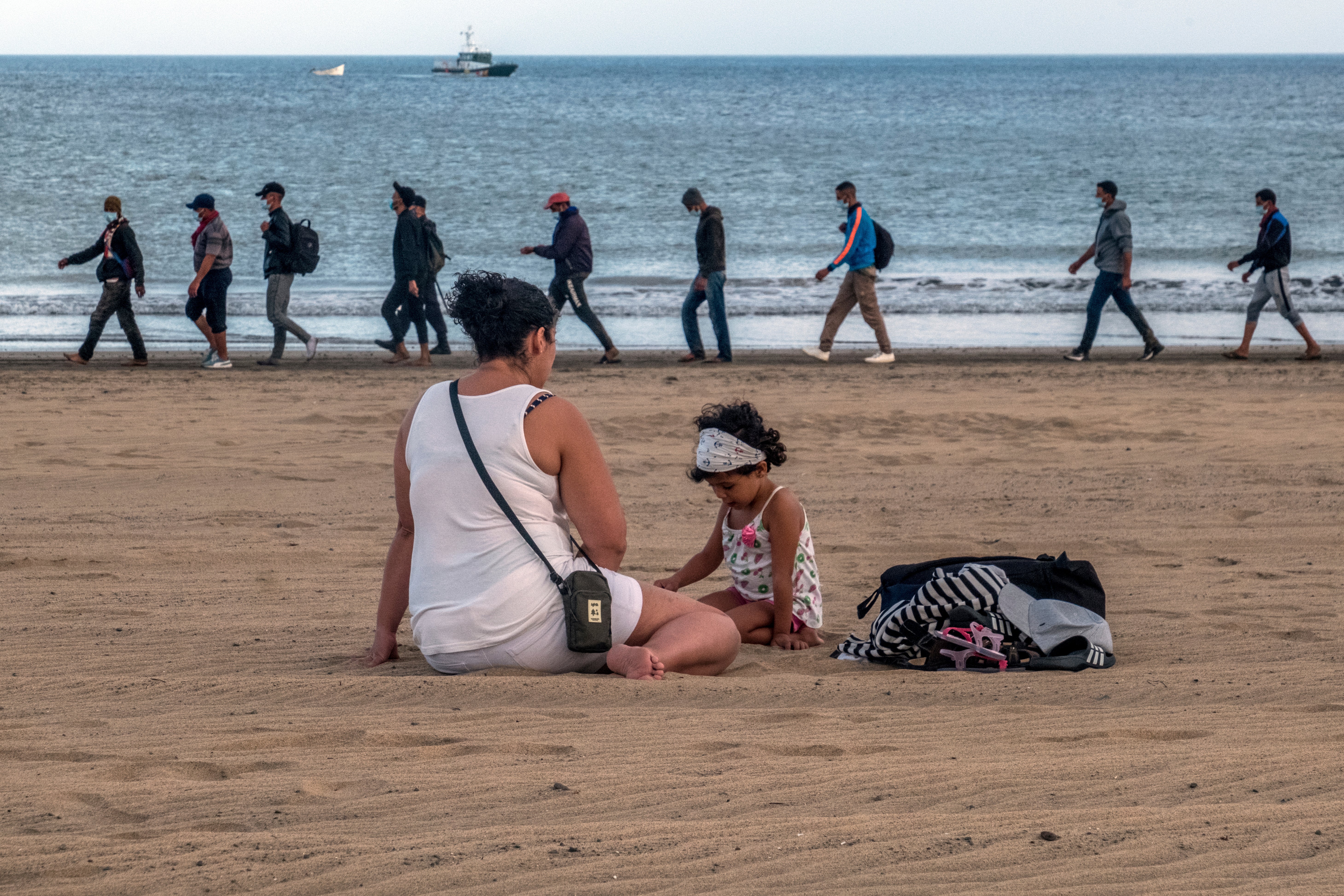Tensions in packed migrant shelter on Spain´s Canary Islands
Overwhelmed authorities on the Canary Islands are asking Spain’s government for help to care for a rising number of migrants arriving from west Africa

Your support helps us to tell the story
From reproductive rights to climate change to Big Tech, The Independent is on the ground when the story is developing. Whether it's investigating the financials of Elon Musk's pro-Trump PAC or producing our latest documentary, 'The A Word', which shines a light on the American women fighting for reproductive rights, we know how important it is to parse out the facts from the messaging.
At such a critical moment in US history, we need reporters on the ground. Your donation allows us to keep sending journalists to speak to both sides of the story.
The Independent is trusted by Americans across the entire political spectrum. And unlike many other quality news outlets, we choose not to lock Americans out of our reporting and analysis with paywalls. We believe quality journalism should be available to everyone, paid for by those who can afford it.
Your support makes all the difference.Overwhelmed authorities on the Canary Islands are asking Spain’s government for help amid rising tensions between migrants and police at a crowded, makeshift tent camp for a steady stream of arrivals from west Africa.
Nearly 2,000 migrants live in the facility designed to shelter 400 people on a pier on the island of Gran Canaria, part of the Atlantic archipelago that's at the end of the busiest — and deadliest — route for those risking their lives to reach Europe by sea.
Onalia Bueno, mayor of the port town of Mogán where the migrants are held, wants the central government to open military installations to house the migrants and help relieve what she calls a “humanitarian drama.”
Bueno said Wednesday that the pier is currently home to 1,985 people — including 20 who have tested positive for the coronavirus. Due to the shortage of tents, many sleep outdoors.
“This temporary camp that was set up on Aug. 20 for 400 people has become permanent due to the reluctance of Spain’s government to open up military installations,” Bueno told Telecinco TV.
Her latest plea came a day after TV footage showed Spanish police waving batons to force some men back to their designated holding areas on the pier after they had climbed down into some of the flimsy wooden boats that migrants used for the perilous trip. The men were reportedly looking for belongings left behind.
“Until yesterday there were 20 to 30 National Police officers to watch over 2,000 people,” Bueno said. “Now they have received backup from the Civil Guard, but it is still complicated to maintain order with so many people in such a small space.”
Human Rights Watch has denounced conditions at the pier. The humanitarian group said that during a recent visit they found migrants sleeping directly on the ground, both inside and outside the tents.
Arcadio Díaz, a judge who oversees an internment center for migrants on the island, told state broadcaster RTVE that the situation was untenable.
“Not only are they sleeping outdoors, the principle danger is (that) there could be a problem of public order, which could be sorted out within hours by setting up military camps,” Díaz said.
The military installations were used to house migrants when the islands saw large arrivals in 2006.
The representative of Spain’s government in the Canary Islands did not immediately respond to questions by the Associated Press regarding the mayor’s request.
The route to the islands from Africa, which at its closest point in Morocco is 100 kilometers (about 60 miles) away, has seen an increase in traffic this year after the European Union funded Morocco in 2019 to stop migrants from reaching southern Spain via the Mediterranean Sea.
Roughly half of the migrants to reach Spain by sea this year have arrived on the Canary Islands, a total of over 14,600 people that includes 2,950 just in the past week, according to the United Nations Refugee Agency. The 8-10 day journey is the most treacherous route to Europe, having claimed more than 230 lives so far in 2020.
___
Ciaran Giles in Madrid contributed to this report.